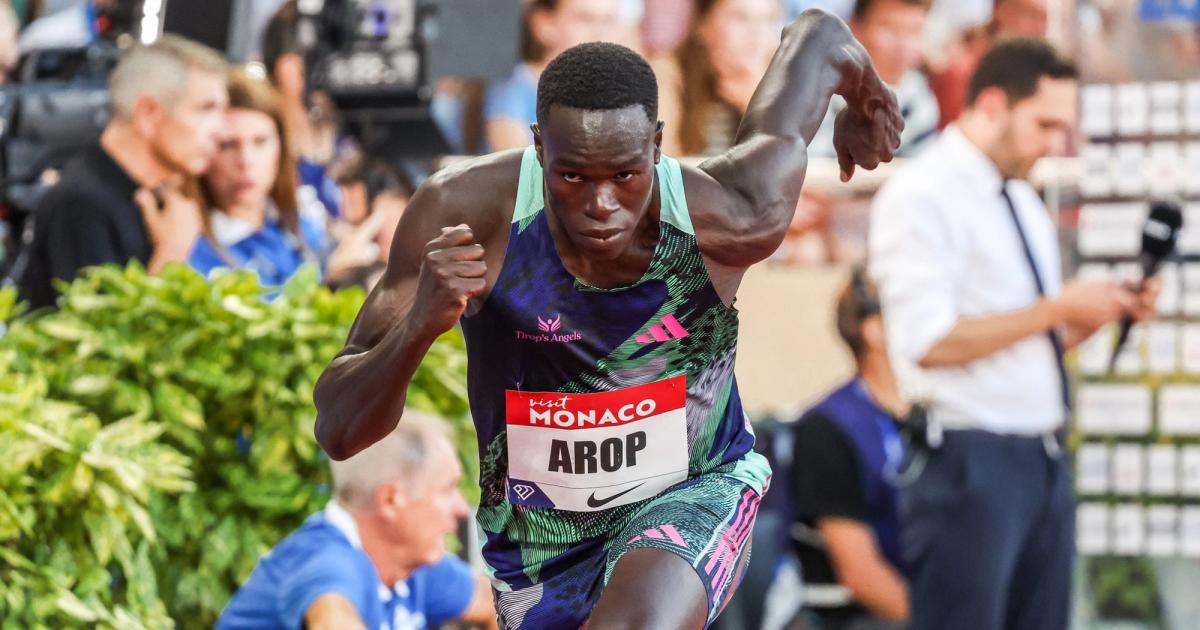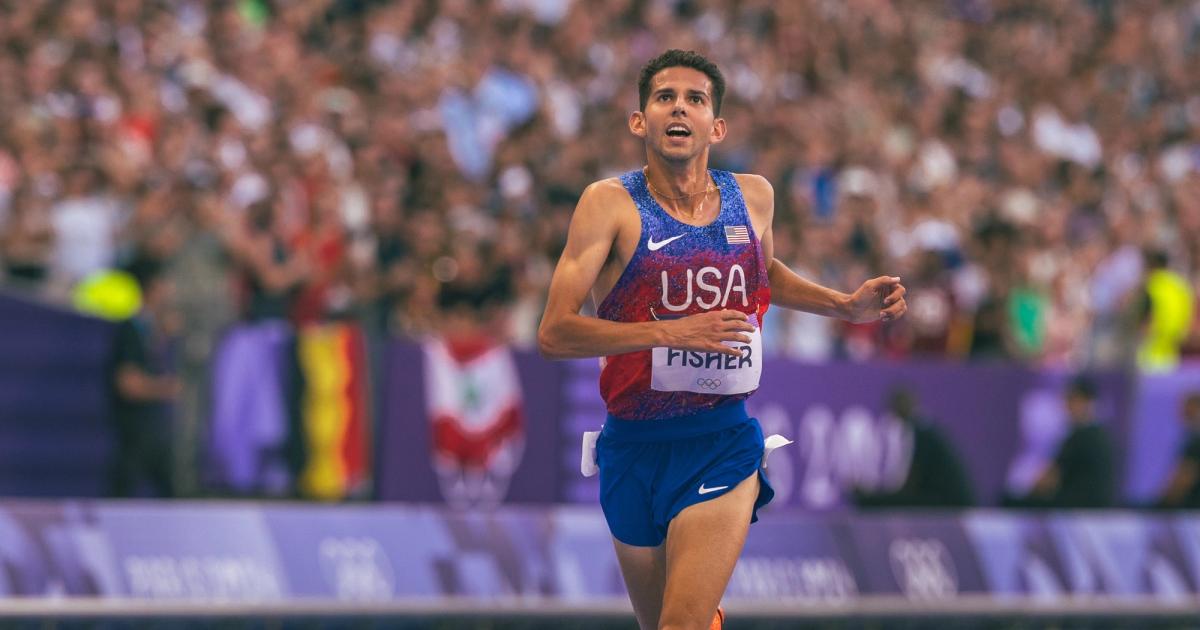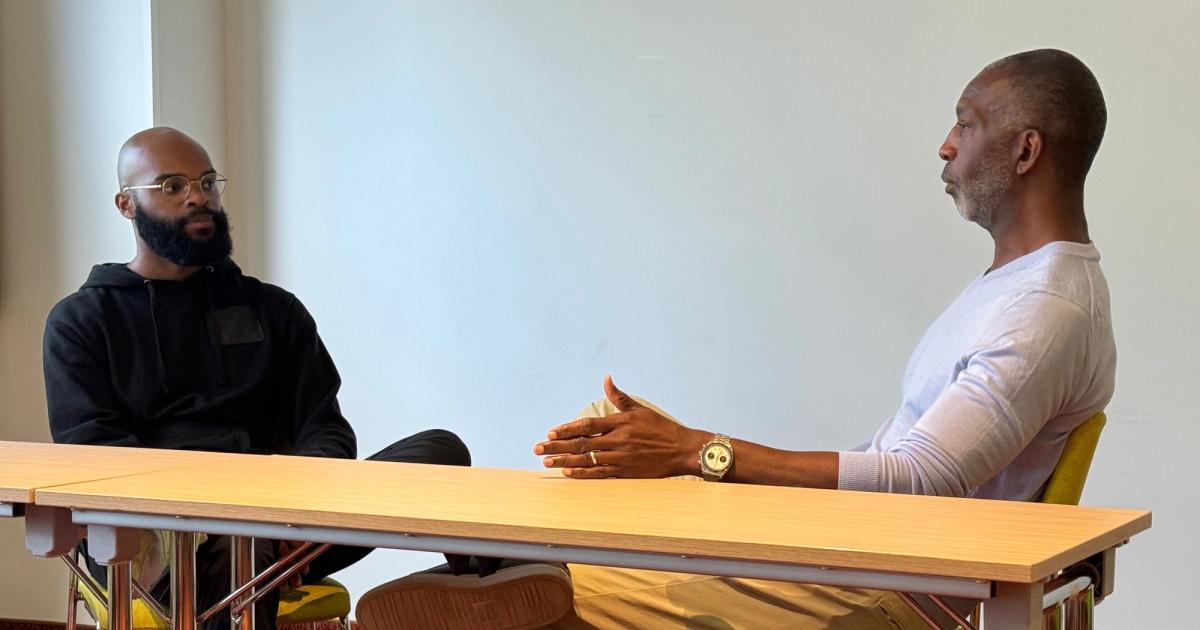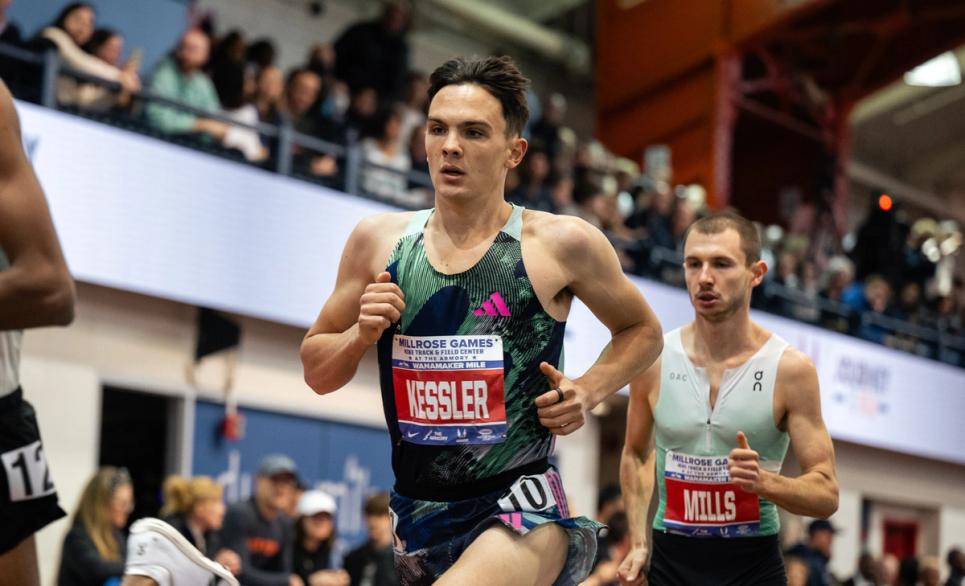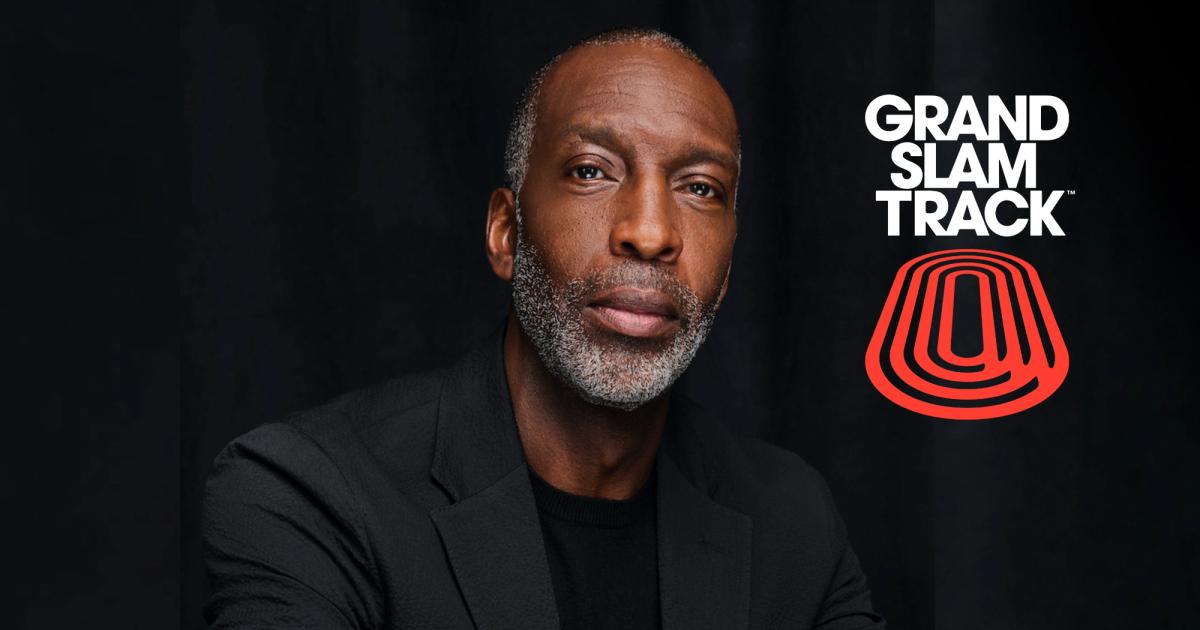January 7, 2025
Listen
"At that point, it's all about your preparation and mental game. In those last few weeks, there's not really a lot you can do to get better. I knew going in: ‘This is what I've got. I've got to bring the best out of myself.’"
My guest for today's episode is Marco Arop, the reigning world champion and Olympic silver medalist in the 800m. Marco isn't just one of the fastest men in the world; he's also one of the most fearless. In 2024, he clocked a blazing 1:41.20 to set the North American record in the 800m and move up to No. 4 on the all-time list. Now he's setting his sights on breaking the seemingly untouchable 1:40.91 world record set by David Rudisha. I'm going out on a limb: I think it goes down in 2025. It's a mission that his team has dubbed “Project 99.”
But Marco's not just stopping there. He's bringing his talents and his ambition to Michael Johnson's Grand Slam Track for its inaugural season in 2025, joining a star-studded lineup of middle distance legends like Josh Kerr, Cole Hocker, and Yared Nuguse. So although he's known for his dominance in the 800m, Marco will also test his limits in the 1500m, pushing himself and the competition in ways that we will be very entertained by in the first season.
Marco joins us to reflect on his incredible 2024 season, discuss the challenges of Grand Slam Track, and share his journey towards becoming the first man to run an 800m in under 100 seconds.
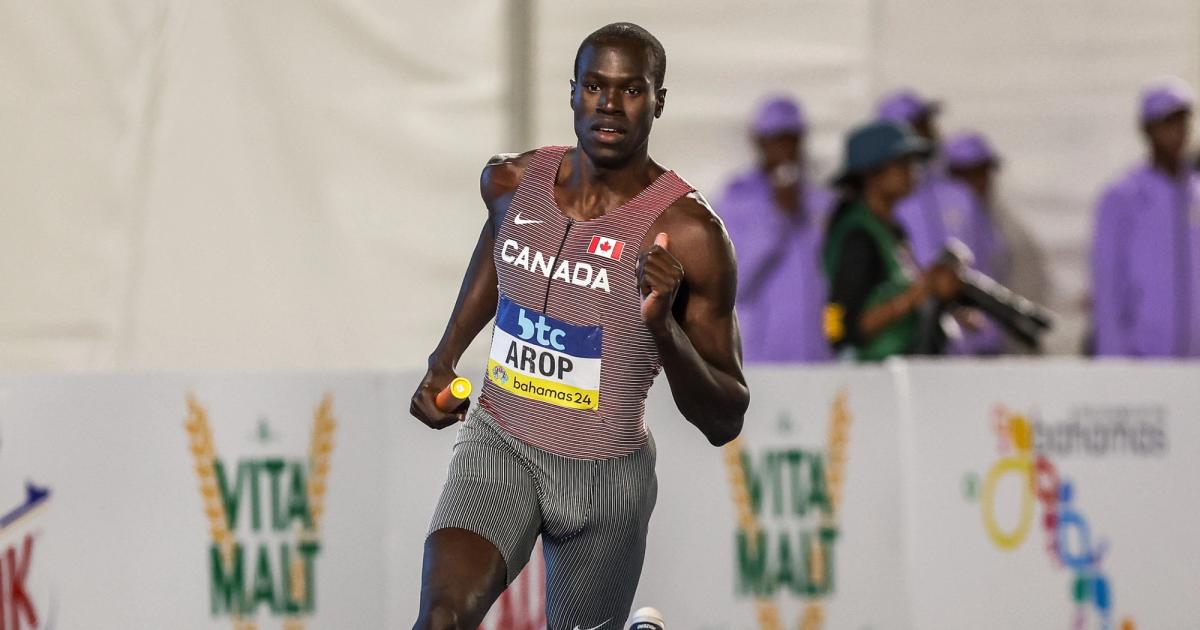
Kevin Morris / @kevmofoto
The following has been edited lightly for length and clarity. You can listen to our full interview with Marco Arop on the CITIUS MAG Podcast.
Chris Chavez: Congrats on an incredible year. You got the Olympic silver medal, you signed with Grand Slam Track, and you ran 1:41 to move up on the all-time list. How does this year feel now that you’ve had a chance to reflect on it? (3:44)
Marco Arop: We had a lot of goals coming into this year. The North American record was one of them and winning the Olympics was the biggest goal. I thought I had a phenomenal season. There were a few moments that were a bit bittersweet where I performed well, but could have done better. The Olympic final was exactly that.
Looking back on it, I think we checked off a lot of boxes. There's a lot of confirmation that everything is working. The training has been working and I trust my coach. Moving forward, we've got so much more things to achieve. I'm really excited. I finished the season hungry for more. I’m happy with the way it went, but I think this next year with Grand Slam Track is going to be very interesting.
You entered this year as the world champion, which obviously puts a huge target on your back. You raced a couple times in the lead-up to the Olympics where you took a couple of L's. You were okay with that as you were rounding into form.
Come the Olympics, you showed out and came away with the silver medal. You described it as a little bittersweet, but I view that as a fairly clutch performance. That's the competitor in you. How were you able to time your peak perfectly for the Olympics when it mattered most? (5:50)
You're absolutely right. It wasn't a perfect season by far. There were some ups and downs leading into the Olympics. You might be surprised, but I wasn't as confident as I was going into the World Championships last year. Part of it was being like the 10th fastest [800m runner] this year and knowing that I was going to have to run a personal best to possibly make the final or get in a medal position.
But it's all about trusting the process. No matter how the season goes – the wins and the losses – I know that as long as I'm improving, getting better, training, and healthy, that's really the biggest part. I know I'm just going to keep getting better and performing well when it comes to, like you said, a clutch performance at the Olympics.
At that point, it's all about your preparation and mental game. In those last few weeks, there's not really a lot you can do to get better. I knew going in: ‘This is what I've got. I've got to bring the best out of myself.’ I’ve got to give a lot of credit to the team behind me because without their support, I wouldn't have had as near or as close to the performance that I had. I want to be known as the guy that when I'm put in high pressure situations, I can perform to the best of my abilities. I think I've kind of been proving that in the past couple of years.
What elevated the 800m this year? Everyone's trying to pinpoint where the marginal gains were: was it fast tracks, the spikes, the bicarb? It's all those factors coming together. Was that a lot to process as the world champ? (7:36)
I think all of it plays a factor. You're definitely right about coming into it as the world champion. I knew last year finishing the season that it was going to be tough to come back and have a target on my back. I actually embraced that. I went into training highly motivated and ready to train harder than I ever have. I thought I did that really well. Coach and I had a plan that just worked out. Funny enough, it was in May when we had a workout that indicated where I was at in the 800m and it showed that I was in 1:41 shape. 1:41.5 to be exact.
I don't know if you've heard of a Kosmin test, but it's a 60 second run, almost full-out, and then you take three minutes rest. Then you do another 60 second run. There's a chart and then a way to calculate it. It's always worked for me and I've been doing it for years.
And this year was your best showing yet!
I had so much confidence after that. I was like, ‘I know I'm in great shape,’ not thinking that there were going to be five other guys that were also in that shape. I went into the Diamond Leagues very confident and ready to go and then watched the other guys pop up crazy times.
Then I was like, ‘Reality check. Everybody's training hard.’ I think that's the main thing: everybody's motivated to push themselves to another level. The spikes, the new tracks, the bicarb are definitely all helping as well. I just felt like there was something missing. When you get to that point, you don't want to leave any stone unturned. I had some people saying, ‘Don't take it. This is very risky, especially last minute.’
If I could have done it sooner, I definitely would have. I tried it out the week before and didn’t have anything crazy happen, so I was feeling good about it going into the games. I didn't use it for the first round. I figured I would be okay. The semifinal was honestly the most nervous I've ever felt before a race.
Ever?
I wouldn't say ever, but all season. It was up there. Just based on previous Olympic experiences and not making it to a final – knowing how that felt, I didn't want to go through that again. I just wanted to make sure I did everything I could to prepare myself the best. It turned out really well.
After that, I knew I was back to myself again. The final played itself out the way it did. In the preparation leading up to the games, we did everything we could to try and leave no stone unturned. That's just the approach that we try to take every year.
You and your coach have been fairly open about Project 99 [attempting to run 99 seconds for the 800m – 1:39 – to break David Rudisha’s 1:40.91 800m world record].
It's fascinating because it's a record that for a while we didn't think anyone would break, but now there's a handful of guys who could take a big crack at it. Then in addition to that, trade it off for the next couple of years.
Signing with Grand Slam Track, it gets really interesting. How does Project 99 fit into the fact that you're going to be running four quality 800s, and in addition to that, four 1500s as well? (14:00)
It's going to be interesting. The world record has been something that's on my mind for years. Even before I was running 1:45, that was something that coach and I talked about. He believed that I could eventually get to the point where I could run 1:40. As we've gotten closer and closer, that just became more of a reality.
What I've noticed is that some of my best performances have been in championship scenarios. No Pacers. At the Olympics, for example, I didn’t think I was running that fast. I think that's the way things work: you run your best when you're not trying to force it. I think Grand Slam Track provides all of that. You're going to have that championship feeling where there’s no pacers, every racer for themselves.
You don't really need pacers nowadays for the 800m – everyone's just attacking it so fast from the get-go!
Right. You need somebody to set the pace in the race, but when you're in it and not thinking about times, you don't really realize how fast you're running. If somebody would have told me that I was going to run 51 and 50, I would have told them, ‘That's a complete lie.’
But to actually do it now, I know that it's possible. Who knows, we might see some ridiculously fast times in one of the Grand Slam Track meets, maybe in both the 800m and 1500m. I think it's going to be really exciting.
Unfortunately for pacers, if it turns out really well, people are going to start questioning the need for them – but I think they're very important. This is just a different type of race. It's a lot easier to watch for the casual fan as well. I've had a lot of people ask, ‘Why did that person just stop running in the middle of the race?’ I’m like, ‘No, that's their job.’ It's going to be really cool to see it play out.
How do you think this is going to benefit your race tactics? I was speaking with Luis Grijalva, and being from Guatemala, he doesn’t get the U.S. Championship type of stage where he gets to see his biggest competitors in the world go head-to-head at the championships.
You have some of that in Canada, but now you'll be seeing top 800m challengers a couple of times where you can pick things up. Then come [the 2025 World Championships in Tokyo], you can see how to execute it on the day. (17:01)
I think it's going to help a lot, especially at that point in the season from April to June, early in outdoor. It can get you in a competitive mode really early on. It's very important to learn how to race just to race and not necessarily chase times. I think seeing the best of the best go head-to-head gets the race nerves out. It's just all on the line, whoever can cross that finish line first…
Leading up to Tokyo, you're going to see some incredible racers. I can't speak for the other events, like the sprints, but I know for the distance events, times don't really matter as much. You can't just go in and run your own race and stick to a plan. You have to be adaptable. You have to be able to maneuver. I think this is a good opportunity to practice that. You might see some pretty impressive times,
Let's talk about Marco Arop as a 1500m runner. We know you're really good at the 800m, but now we're going to discover your 1500m potential. Your PR right now is 3:38. You're going to be up against high quality fields. What do you think your potential is in the 1500m? (18:38)
I might sound crazy to say this, but I think I can break 3:30 at some point. We'll see next year. I don't know if that's going to be the case since that might be the biggest PR jump from one year to the next. I only ever do one early on in the season.
The 1500m is interesting for me because I don't really know how to run it yet. I don't think I've had the experience. To jump from doing those college meets to going up against the Olympic medalists is going to be really exciting.
What's your mileage like right now? (19:29)
Right now I'm at the most I'll ever do in a season: about 50 to 55 in a week, which is not ridiculously high, but we're improving that every year. The most this year might even get to 60 or 70 miles.
One thing we've changed in our training is that we're going to be implementing altitude training and I think that'll help a lot. We still have to figure out how the training is going to look leading up to Grand Slam Track and the season.
I think I might surprise some people, to be honest. Or I might get cooked. I'm just going to throw that out there. But I'm ready for it. I know that no matter what happens, it's going to make me a stronger athlete. It's going to make me much better.
You're the X Factor in the 800m/1500m category. Have you started thinking about the tactics of the score table and all that? (20:39)
I kind of knew what it would be like when I saw the other racers like Josh [Kerr] and Cole [Hocker]. I knew if I signed up, I would definitely be the favorite in the 800m by far and then would be the heavy underdog in the 1500m.
It's a cool position to be in. There's a lot of pressure I put on myself to win those 800s. I know regardless of who's in it, I'm expecting myself to win. I'm going to go out there and try to do the best I can. Then in the 1500m, I really want to surprise some people. I know this is not in my domain, not yet at least – but I'm going to go and give those guys the best I've got.
How different is it going to be racing those guys in an 800m versus what you're typically used to at a Diamond League when you go up against a [Djamel] Sedjati or a Bryce Hoppel? Those guys may come in as challengers later on, but when you look at the core of racers, how do you think they'll run an 800m against you? (21:59)
I think the faster you are, you just have more tools in your belt. You have more tactics to play with. I can probably get away with going through in 49 and I doubt any of those guys will follow me.
But if I sit and play around with them in the pack, some of them might surprise me. I just have to be prepared. I don't want to take any of these guys and underestimate their abilities. I think some of those PRs might be deceiving. I can't go in thinking 1:46 is what they're always going to run.
Being in that sort of race setting, some of these guys might surprise themselves and the rest of the world in their 800m abilities. It’s kind of like Cole in the 1500m: huge PR in the final of the Olympics. That might be the case in the 800m as well. I'm ready for just about anything. I think when the time comes, I'm going to have the right tactics – hopefully in the 1500m as well as the 800m.
My final question for you: now that we have all the racers set, who do you want to see come in as a challenger? You could throw out a couple of names. (23:27)
Because we have a strong 1500m field, I'm going to start with the 800m guys. I'm always going to challenge [Emmanuel] Wanyonyi. I think he’s my biggest rival right now. Sedjati, of course. Bryce Hoppel would also be an amazing addition.
Now on the 1500m side, I think Jakob Ingebrigtsen would be pretty cool. He’s really strong from the 1500m. If he steps down for the 800m, that might be a bit challenging – but it would be really cool to see him in it. Then of course I've got to go with the young guy: Hobbs Kessler. He definitely has the most potential in both events, I think out of everyone. Those are the first guys that come to mind.
You can't let a challenger come in and steal $100,000, though!
No, but I think it's more exciting for people to watch. I love competition. The idea of having the best of the best, all together in one race and multiple races, that just gets me excited. That's what the fans want to see….
I don’t feel like you can go wrong with most athletes at this level though. There’s just so many guys out there that can compete at this level.
Time stamps:
- 3:44 - Reflecting on the 2024 season
- 5:50 - How he timed his peak for the Olympics
- 7:36 - Why the 800m elevated so much in 2024
- 14:00 - Thoughts on racing both the 800m and 1500m for GST
- 17:01 - How competing in GST will benefit his race tactics
- 18:38 - His potential as a 1500m runner
- 20:39 - Thoughts on being the X factor in GST’s 800m/1500m category
- 21:59 - How he thinks his GST competitors will race against him
- 23:27 - Who he wants to see come in as a challenger for GST
___________________
Keep up with all things track and field by following us across Instagram, X, Bluesky, Threads, and YouTube. Catch the latest episodes of the CITIUS MAG Podcast on Spotify and Apple Podcasts. For more, subscribe to The Lap Count and CITIUS MAG Newsletter for the top running news delivered straight to your inbox.
Support The Sponsor

SPOKANE SPORTS COMMISSION
In Spokane, Washington, there’s Spring, Summer, Fall, Winter and now, Fast. Fifth Season is hosting elite indoor track and field events all throughout January and February. All events take place at the Podium Powered by STCU, SPOCAN’s state-of-the-art indoor track facility. Learn more here.

WAHOO: KICKR RUN
WAHOO: KICKR RUN - a new revolutionary treadmill offering the freedom and form of outdoor running at home, from Wahoo Fitness. Run hands-free and focus solely on the joy of running with the innovative RunFree Mode - which adjusts to your stride and pace automatically. For the first time runners can now fully benefit from indoor training apps such as Zwift Run and the Wahoo app for an immersive training experience that delivers unmatched realism and results. Learn more at WahooFitness.com

Chris Chavez
Chris Chavez launched CITIUS MAG in 2016 as a passion project while working full-time for Sports Illustrated. He covered the 2016 Olympics in Rio de Janeiro and grew his humble blog into a multi-pronged media company. He completed all six World Marathon Majors and on Feb. 15th, 2025 finally broke five minutes for the mile.
